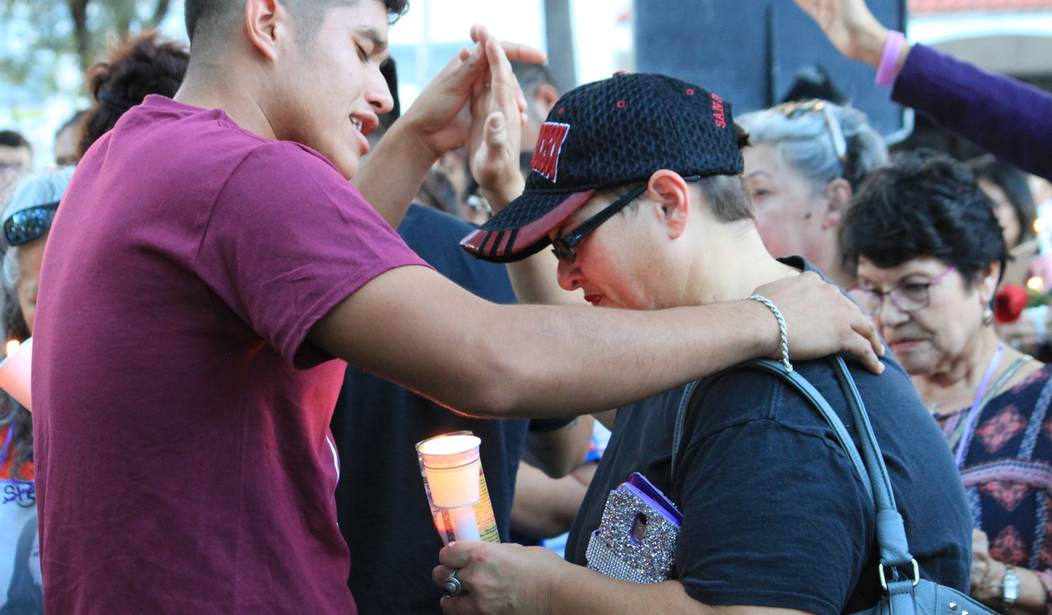Ask any randomly selected group of 100 Ivy League men and women students which worldview — secular progressivism or Protestant evangelicalism — produces the worst marriages and odds are the latter will be the all but unanimous choice.
After all, from such students’ first day on campus, their professors, lecturers, and textbooks have told them those insensitive, anti-intellectual brutes sitting in the front row of the local Southern Baptist church think God made them tyrants over their wives and kids. Behind closed doors, their homes are miserable, abusive, and often violent white patriarchal hell-holes.
The same message is repeated daily in the mainstream media, in Hollywood cinematic productions, cable news discussion shows, and livestream video entertainment: Especially if you are a woman, the worst thing that can happen to you is to be married to one of these hypocritical, domineering, oppressive patriarchs or be the child of one.
It turns out, however, according to philosopher Nancy Pearcey, author of “The Toxic War on Masculinity,” the Ivy League stereotype of evangelical Christians are actually men who call themselves that but who rarely go to church or read their Bibles. They are merely “nominal Christians.”
The men who take their faith and their Bible seriously, who seek to live according to the saving grace and transforming values epitomized by Jesus Christ, are often the guys who have the happiest lives, wives, kids, and homes.
And that’s not just Pearcey’s opinion. On page after page of well-reasoned, thoroughly documented analyses that are sure never to be assigned reading in Harvard, Princeton, or Yale classrooms, Pearcey destroys the Progressive Left’s conventional wisdom about men, women, marriage, and sexuality.
“When sociologists conducted empirical studies, they found that men who identify as theologically conservative Christians divide into two distinct groups and these groups diverge dramatically. One consists of men who are religiously devout, defined as those who attend church at least three times a month.
“These men shatter the negative stereotypes. They are more loving to their wives and more emotionally engaged with their children than any other group in America. They are the least likely to divorce, and they have the lowest levels of domestic abuse and violence.”
You might want to read that again because Pearcey is relaying the cold, hard facts made clear by objective, data-driven scholarship. (And in the process, we see yet another illustration that the truth will invariably be the opposite of what is claimed by America’s progressive elites).
How could they get this one so wrong, as they do so much else? In this particular case, it’s because they insist on ignoring something else discovered by objectively assessing the data. As Pearcey explains:
“Researchers went back to the data and discovered that nominal Christians test out with far different results. Nominals are those defined as those who identify with a religious tradition because of their family or cultural background, but who attend church sporadically, if at all. (The word means ‘in name only’). For example, in a survey a man might check the ‘Baptist’ box because of his family background, even though he rarely attends church.
“Studies find that nominal Christian family men do fit the negative stereotypes, shockingly so. They spend less time with their children, either in discipline or in share activities. Their wives report significantly lower levels of happiness. And their marriages are far less stable.”
Consequently, any data analysis of these matters that fails to account for this crucial distinction within the church community is guaranteed to mislead. And a perfect example here is the datapoint repeated endlessly that Christians have the same divorce rate in America as non-believers.
That’s simply not true. As Pearcey notes, “regular churchgoers divorce at a lower rate than secular couples, whereas nominal couples divorce at a higher rate than their secular peers.”
Related: The Song That Screams From America’s Soul: Oliver Anthony’s ‘Rich Men North of Richmond’
And now for what will for many be the most stunning revelation: If you seek to have the most sexually satisfying relationship with your spouse, the data indicates you should go to church often, read your Bible seriously, and pray for the daily guidance that only a living relationship with Jesus Christ can provide.
That’s not a sermon, it’s a fact, as Pearcey explains:
“Women who are highly religious also report greater sexual satisfaction than other women. This surprising fact turned up as far back as 1977 in a survey by Redbook magazine, and it has been repeatedly replicated. One study found that ‘for both the wives and husbands, feeling that God was part of their marriage was positively associated with sexual satisfaction.’
“Another study concluded, ‘when it comes to relationship quality in heterosexual relationships, highly religious couples enjoy higher quality relationships and more sexual satisfaction, compared to less/mixed religious couples and secular couples.”
Pearcey goes on and points to the National Health and Social Life Survey, which she describes as “the most detailed analysis of sexual behavior in America.” That survey found that weekly worshippers “‘were most likely to report feeling wanted and needed during intercourse.'”
Bet you didn’t expect that one!
Get Pearcey’s book, especially if you are a man. I’ve only just provided you a small slice of a hugely significant work that pulls no punches about the scholarship, about the church (she suffered much of the worst in this regard during her childhood and adolescence), and about the profoundly corrosive effects of the secular culture’s destructive alternative ideals of manhood: the vacuous “sensitive guy” and the boys who never grow beyond the endless pursuit of casual sex and self-centeredness.
I’ve been following Pearcey since first encountering her “Total Truth: Liberating Christianity from its Cultural Captivity” in 2008. That one is a profoundly important work as well, but I have a hunch that “The Toxic War on Masculinity” will prove to be her most influential book. It is definitely the most needed one.










Join the conversation as a VIP Member